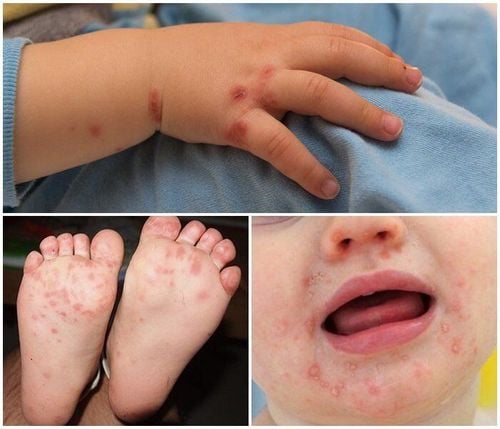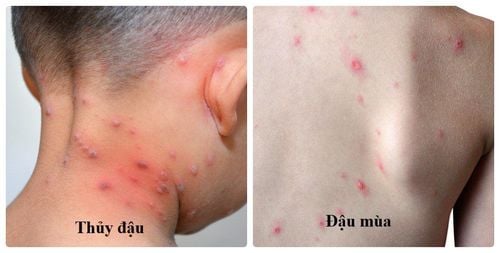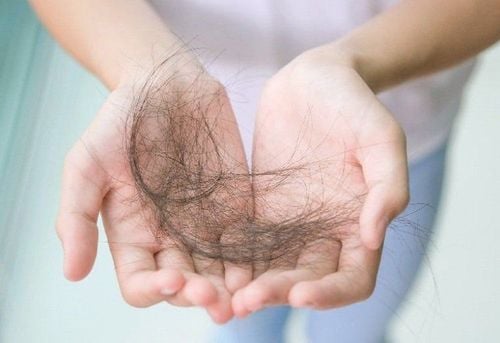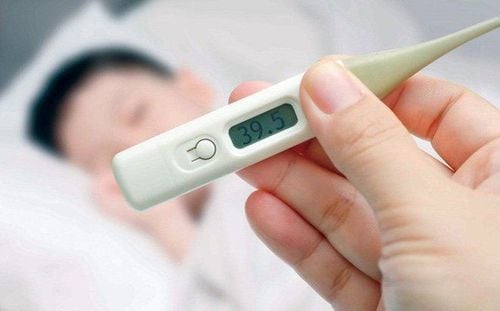The article was professionally consulted by Resident Doctor Duong Van Sy - Pediatrician - Department of Pediatrics - Neonatology - Vinmec International Hospital in Hai Phong.
Hand-foot-mouth disease (HFMD) is no longer strange; the disease can appear at any age but is common in young children. This is a dangerous infectious disease; if proper preventive measures are not taken, the disease can recur many times
1. Why can HFMD recur many times?
HFMD is an infectious disease that can be transmitted from person to person through direct contact with saliva, mucus in the nose and throat, fluid from blisters or feces of the patient, or using personal items shared with a person with HFMD. If there are no timely preventive and control measures, there is a high risk of the disease breaking out into an epidemic. The disease is most contagious during the first 7 days after infection, but the infectious period can last for several weeks because the virus that causes the disease remains in the patient's stool.
HFMD is caused by an intestinal virus infection. In cases where the body is infected with the Coxsackie A16 virus that causes HFMD, the disease is usually mild, with almost no symptoms, and can heal on its own. However, if the body is infected with HFMD due to infection with Enterovirus 71 (EV71), the disease is severe, with many serious complications, even causing death. Each infection only produces antibodies to a certain type of virus, so the disease can recur if infected with another virus in the enterovirus group. Therefore, children who have had HFMD are at risk of reinfection.
Most cases of HFMD in children are mild and can heal on their own. However, it is necessary to carefully pay attention, whether in a few severe cases with the risk of dangerous complications such as myocarditis, acute meningitis, and acute pulmonary edema, which if not detected and treated promptly can lead to death.

2. All people who come into contact with children with HFMD are at risk of infection
The rate of intestinal virus transmission to healthy people is 17%, and to relatives and people in direct contact with sick children is 23%. This conclusion shows that all people who have the opportunity to come into contact with children with HFMD are at risk of infection and can even transmit the disease to others.
There is currently no specific vaccine for HFMD in Vietnam. Therefore, parents and families need to seriously implement preventive methods, specifically:
- Wash hands regularly with soap properly, especially before cooking; before eating or feeding children; before holding children; after going to the toilet; as well as when changing diapers and doing hygiene for children.
- Comply with food hygiene: eat cooked food, drink boiled water, disinfect utensils thoroughly before use, and use clean water in daily life. Totally avoid feeding children by parents' chewing then feeding; do not let children suck their fingers, eat with their hands, or suck on toys; do not share towels or personal items without sterilization.
- Clean the surrounding environment, areas, or items that children come into contact with every day, such as learning equipment, toys, tables and chairs, floors, etc., with detergents or soap, then disinfect with bleach containing diluted chlorine.
- Totally avoid letting children come into contact with people who are sick or suspected of having HFMD.
Toilets and waste of sick people must be treated according to regulations on hygiene and disease prevention.
If a child is found to have HFMD, it is necessary to take the child to the hospital for diagnosis and timely treatment.
For pregnant women, it is necessary to minimize direct contact with sick people and fully implement methods to prevent the possibility of HFMD infection. In case of illness during pregnancy, the mother is at risk of transmitting the virus to the fetus, leading to the consequence that the child is born with a mild intestinal virus infection, so it is necessary to pay close attention.
To protect the child from factors that affect health, you need to monitor and take the child to the doctor when there are unusual symptoms.
To arrange an appointment, please call … or make your reservation directly HERE. You may also download the MyVinmec app to schedule appointments faster and manage your reservations more conveniently.














